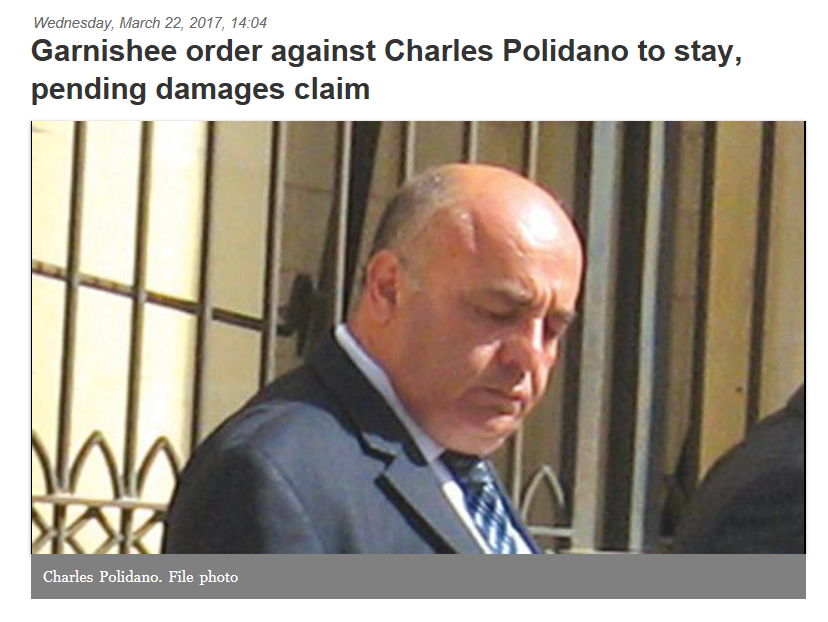When is this particular house of cards going to come crashing down?
Charles Polidano, described in the newspapers as “a property magnate”, was in court this morning arguing for the lifting of a precautionary warrant of €80,000 on his assets. It was refused. His employees’ wages had been frozen, he said.
What sort of “property magnate” can’t afford to have €80,000 ring-fenced? It’s because he’s not a property magnate at all, but a man perennially in trouble.
One of the things that irritates me most about Maltese people is the way they buy the myth that X or Y has money or is “successful” or a “rich businessman”. Maltese people are strangely naïve and gullible about these things. They assume the existence of money without working out the sums, looking at the evidence or reading the clues. And they never, but never, ask how the money is made.
One of the earliest lessons I learned in life is that those who are keenest for everyone to know that they’re moneyed are the very ones who use nothing that isn’t effectively owned by the banks, and that the more they buy and spend, the more they owe. Meanwhile, the truly, properly moneyed lead plain lives and take great care not to be profligate, let alone flaunt it, which is anathema.
The more certain individuals owe, the more in debt they are, the keener they are to cultivate a reputation for money, because this obviously allows them to get credit from companies and individuals, if not from the banks where they have over-stretched their welcome.
Malta is full of such individuals. They owe millions, can’t find the money to pay their employees properly or pay them at all, buy boats, cars and big houses (hypothecated several times over with the banks), show off, throw their weight around, and the system conspires to keep them afloat so that they don’t bring down hundreds of other people with them when they crash.
If Charles Polidano can’t afford to lose €80,000, even temporarily, his suppliers and employees should be even more worried than they probably are already. The banks don’t need any such warning signs because they have all the information they need, and would probably far rather they didn’t.

